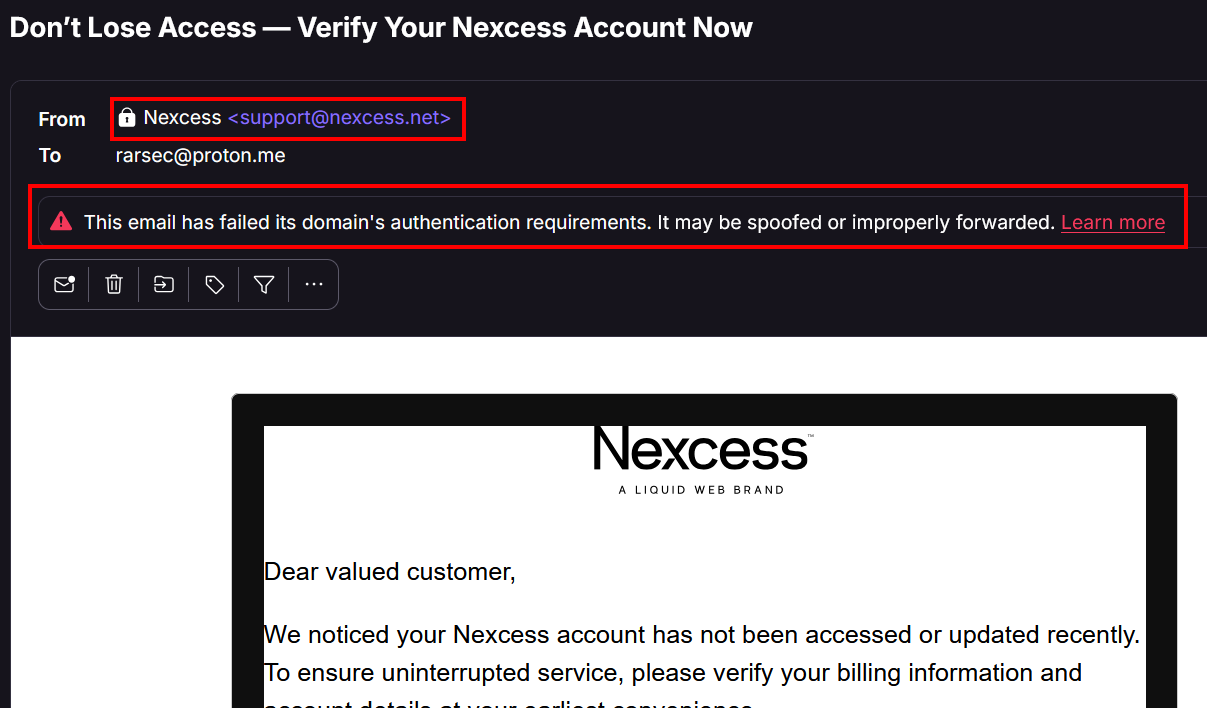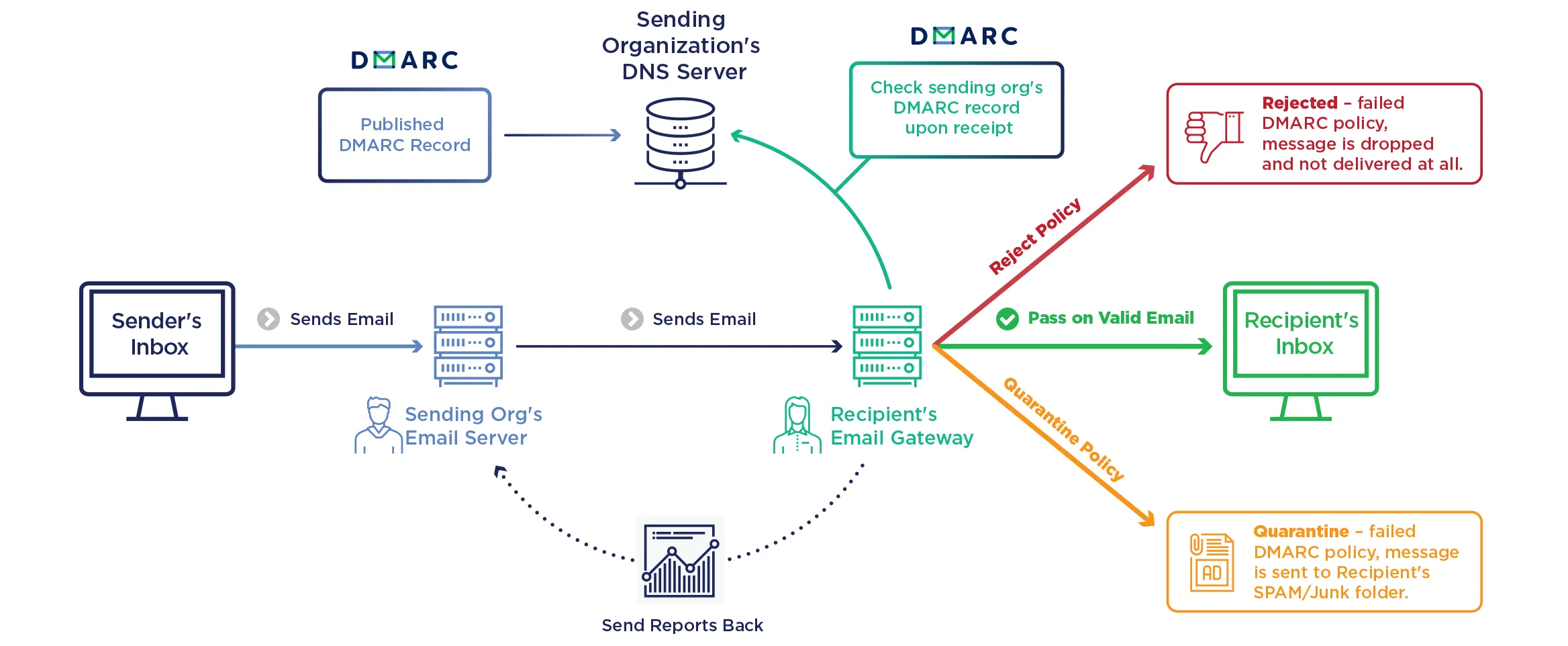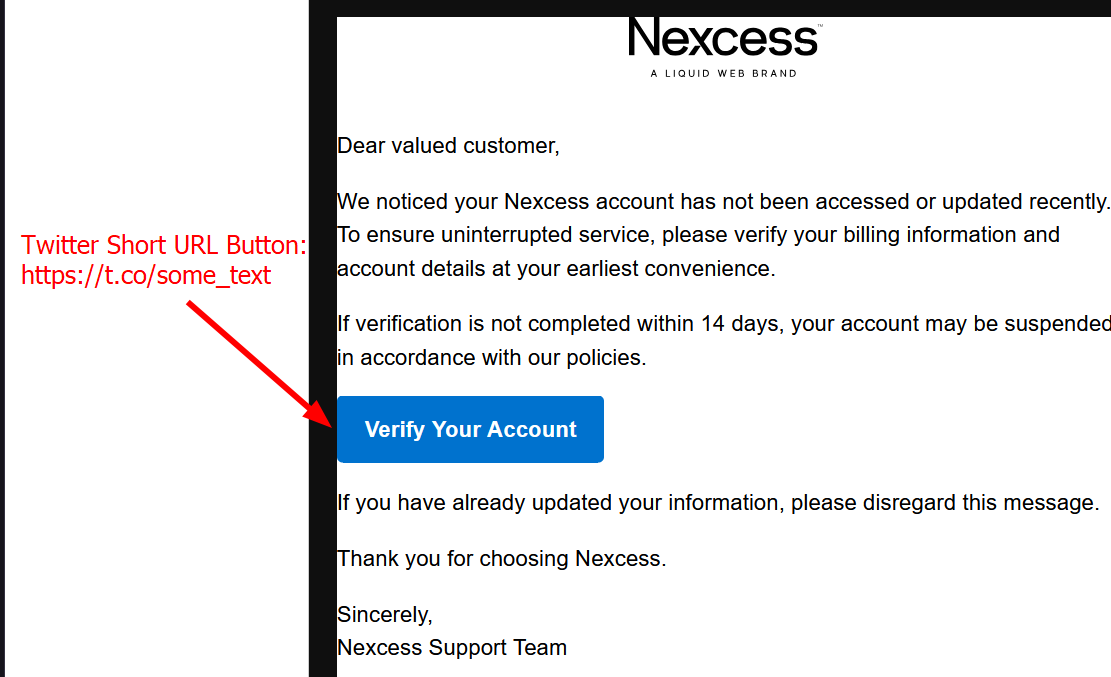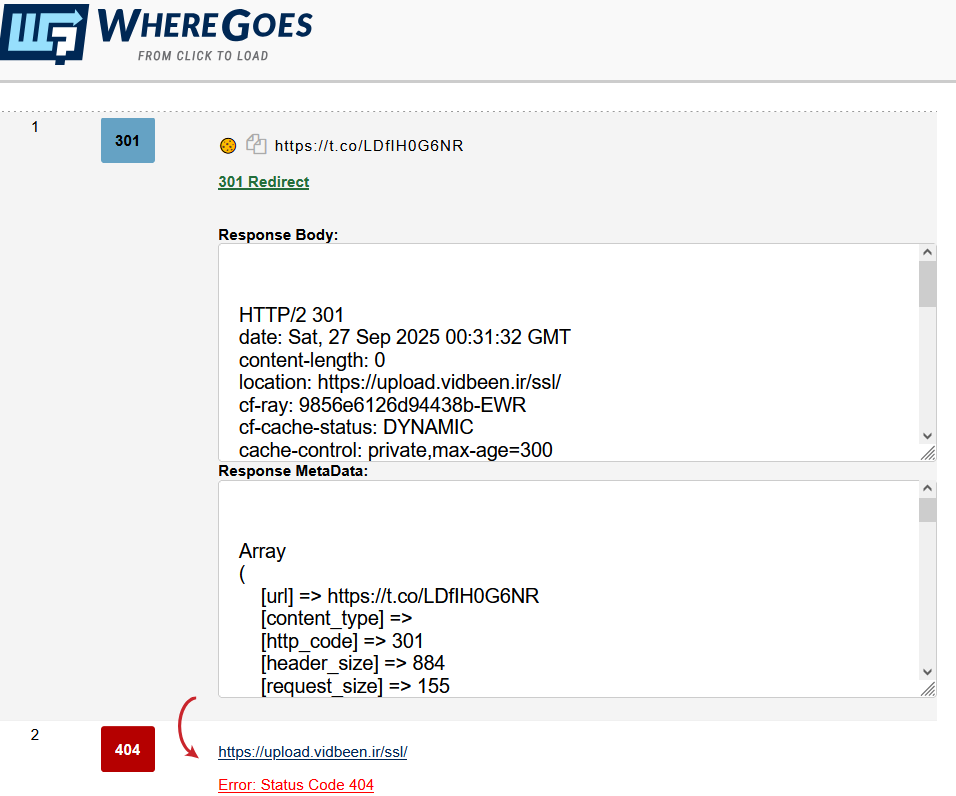Inside a Phishing Attempt: Technical Breakdown of a Spoofed Email
Published: September 28, 2025 By 0xRar
I opened my public email a few days ago, and i found an interesting mail supposedly
“coming from” support@nexcess.net, but protonmail actually flagged it for
being spoofed which was good.
A little introduction: nexcess is a hosting service provider based in the USA, they provide services such as VPS Hosting, Cloud, Dedicated server hosting and more.
What is email spoofing? , email spoofing is a common tactic used by threat actors
where they send an email with a forged sender to make it look like it came from a trusted
sender, this is possible because SMTP(Simple Mail Transfer Protocol) does not have a
feature that authenticates email addresses.

Technical Details
Lets get more into the technical details, the threat actors didn’t really do enough research because they didn’t seem to realize that i don’t actually use nexcess as a hosting provider 😁 which was a bit funny rather almost my entire website runs on github infra via their github pages.
How to really know if the email is spoofed?, the answer is view the headers of the email
instead of only looking at the from: or sender.
Email Headers
Return-Path: <postmaster@86e835319c.nxcli.io>
X-Original-To: rarsec@proton.me
Delivered-To: rarsec@proton.me
Authentication-Results: mail.protonmail.ch; dkim=fail (Bad 0 bit
rsa-sha256 signature.) header.d=86e835319c.nxcli.io header.a=rsa-sha256
Authentication-Results: mail.protonmail.ch; dmarc=fail (p=none dis=none)
header.from=nexcess.net
Authentication-Results: mail.protonmail.ch; spf=none smtp.mailfrom=86e835319c.nxcli.io
Authentication-Results: mail.protonmail.ch; arc=none smtp.remote-ip=209.87.149.245
Authentication-Results: mail.protonmail.ch; dkim=fail reason="key not found in DNS"
(0-bit key) header.d=86e835319c.nxcli.io header.i=@86e835319c.nxcli.io
header.b="XFVjBFda"
Received: from cloudhost-3927890.us-midwest-1.nxcli.net
(cloudhost-3927890.us-midwest-1.nxcli.net [209.87.149.245])
Lets focus on this: dmarc=fail (p=none dis=none) header.from=nexcess.net
DMARC(Domain-based Message Authentication, Reporting, and Conformance) fail means the email
did not pass SPF (Sender Policy Framework) or DKIM (DomainKeys Identified Mail), and since
the DMARC policy was set to p=none protonmail will not block or quarantine which is the
reason it made it through to my inbox and not junk/spam folder.

As you can see here the smtp.mailfrom=86e835319c.nxcli.io is pointed to a subdomain under
nxcli.io which is not controlled by nexcess its actually controlled by the threat actor
who is a nexcess user trying to phish other nexcess users, every user has a Temporary
CNAME-Subdomain as explained on nexcess’s official help page: Nexcess: New Temporary Domain on All Plans.
Unfortunatly i was too late the cname was already gone so i couldn’t really check what ports
were open on 86e835319c.nxcli.io but its safe to assume that port 25/tcp, 587/tcp were open
which is what smtp works on.
Email Content
The email content is as basic as it may sound, just some text to scare you enough to click the button and open the url.

Would’ve really loved analyzing it further but its redirecting me to a page on an iranian website thats returning 404 Not Found Status Code.

Prevention
- To prevent email spoofing you would need to publish SPF, enable DKIM signing, and enforce DMARC with quarantine/reject.
Or Simply enough lets take google’s dmarc record as an example:
v=DMARC1; p=reject; rua=mailto:mailauth-reports@google.com;
Thank you for reading !
Please don’t hesitate to provide feedback, See you space cowboy.